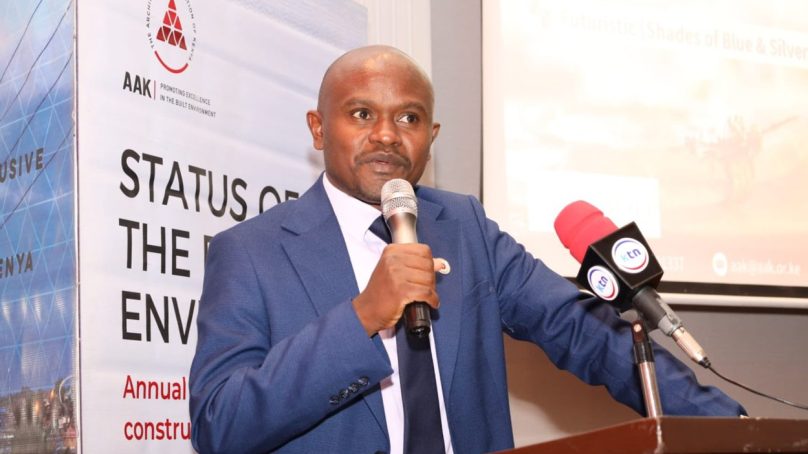
Institution of Engineers of Kenya (IEK) is calling for increased participation of local engineers in the development and execution of major infrastructure projects, many of which have historically been awarded to expatriate contractors.
According to the institute, Kenyan professionals are side-lined during rollout of large-scale, high-value infrastructure development such as highways, ports and rail systems, despite the availability of highly qualified local expertise.
IEK officials argue that this exclusion not only undermines the growth of the local engineering industry, but also results in lost employment opportunities for young professionals in the country.
IEK President Shammah Kiteme expressed concern that critical decisions on national infrastructure projects are often made without consulting local stakeholders. He cited the example of the Rironi-Mau Summit Expressway Project from which Kenyan engineers were excluded in favour of Chinese contractors.
“These decisions are at all times made abroad, between senior officials and international financiers, with little to no input from our local professionals,” Kiteme said.
The issue was brought to the fore during the inaugural Women Engineers Convention held in Naivasha, where additional concerns were raised about gender disparities in the engineering sector.
Currently, women make up only about 14 per cent of engineers in Kenya, a figure Kiteme described as alarmingly low, especially given the volume of ongoing and upcoming development projects.
Guest speaker during the forum Ida Odinga, CEO of Spectre International Limited, warned about the proliferation of unqualified individuals posing as engineers, which she linked to the rise in substandard construction and incidences of collapsed buildings.
Mrs Odinga emphasised the need for proper regulation and greater support for home-grown professionals, which she said will boost local talent while creating tens of opportunities for local engineers.
She decried the low number of women securing opportunities in various engineering fields locally despite the landmark and progressive provisions advanced by the 2010 constitutional dispensation on gender parity.
Odinga also pointed to a troubling trend where many Kenyan engineers are forced to seek work in other African countries due to limited opportunities at home which she attributed to the government policy of outsourcing work to international firms, minimising chances for local talent to thrive.
Engineer Margaret Ogai, a board member at the Engineers Board of Kenya (EBK), echoed these sentiments, expressing concern over the growing presence of foreign firms in projects that could be handled locally.
She noted that global economic shifts have further squeezed out opportunities for Kenyan engineers, leaving many local graduates jobless.
“Right now, more than 40 per cent of our engineering graduates are without employment, even though we continue to award major contracts to foreign entities,” Ogai said.
EBK Chairman, Erastus Mwongera, himself an engineer, added that efforts are underway to collaborate with public institutions across the engineering disciplines to boost the employment rate of women in engineering.
He emphasised the need for gender parity noting that women professionals are more than capable and deserve fair opportunities to contribute to national development. Kenya has made remarkable strides to update its development hardware across the country with the government dedicating a huge chunk of collected taxes towards offsetting loans taken for infrastructure development.
For instance, the country has committed billions of shillings to the construction of the standard gauge railway from the Port of Mombasa to Naivasha and it’s expected to extend further construction to the Malaba border through public-private partnership with China.
Additionally, the county is committing to spending billions of shillings in modernizing its ports including Mombasa, Lamu and Kisumu to actualise the blue economy pillar of the BETA masterplan by the current administration.
It is from the pot of increased government expenditure in infrastructural development that local engineers seek to tap to boost their expertise, create jobs and nurture the local sector.
- A Tell Media / KNA report / By Erastus Gichohi







